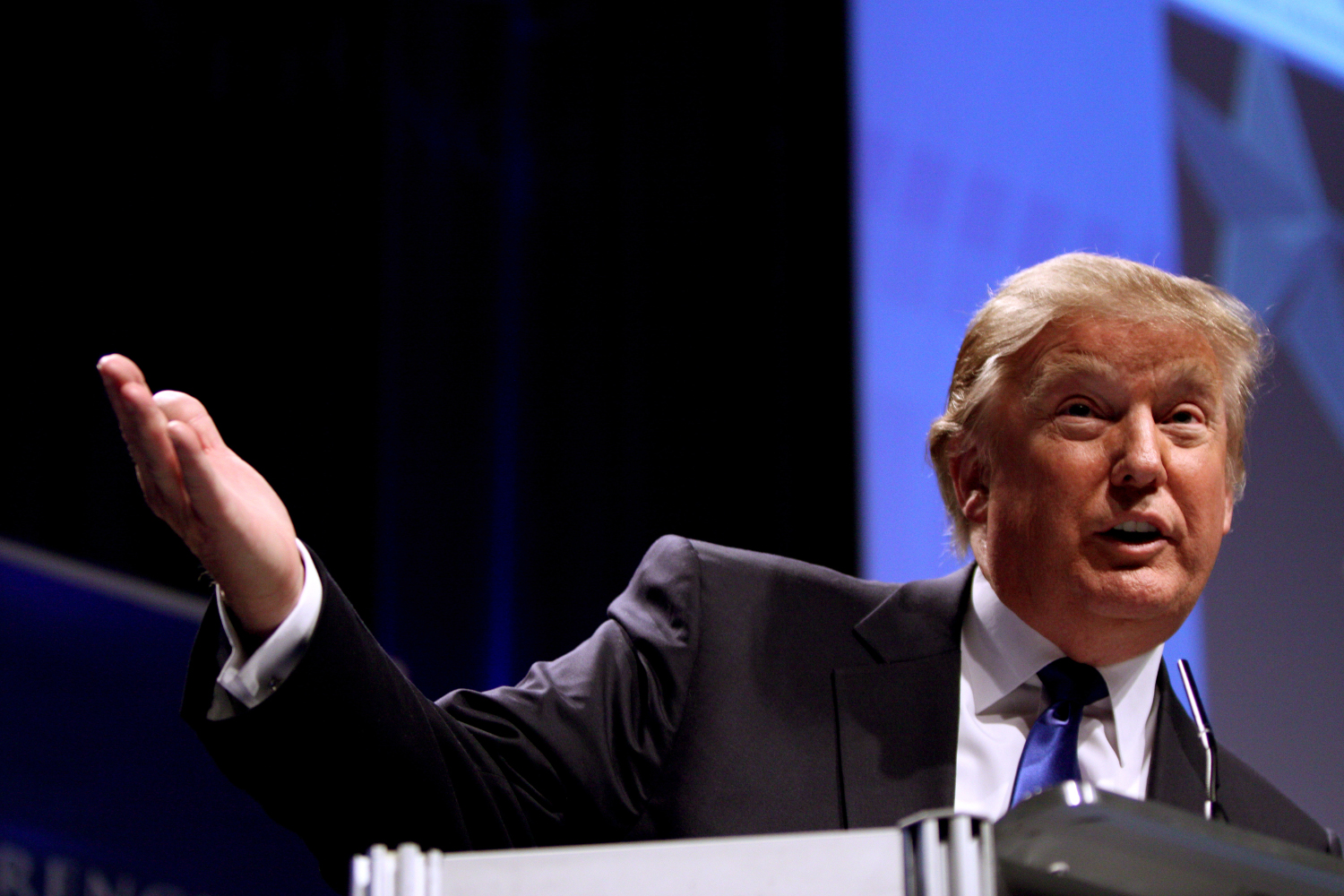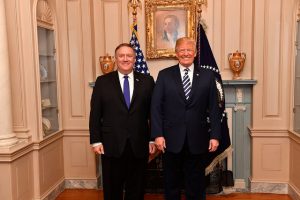by Paul R. Pillar
With less than two months until the Iowa caucus opens the 2016 primary season, Donald Trump’s poll-leading candidacy continues to cause increasing anxiety among Republican Party leaders worried about how he can be stopped from actually getting the nomination. Trump poses two overall problems for the party. One is how freely he insults, denigrates, and offends a variety of groups—to the extent that Washington Post columnist Dana Milbank flat-out calls him a bigot and a racist and criticizes other Republican candidates for being hesitant to call out Trump in the same way. The political problem for the party, of course, is that Trump’s ignoble attitudes in this respect will become associated with the party as a whole.
A second problem is in one sense a reverse of the first. It involves what Trump, in his unrestrained, not-according-to-script style, says that is distinctly different from what the other candidates are saying and what those differences imply about the other candidates. We saw an instance this week at a candidate forum held by the Republican Jewish Coalition, an important event in the “Sheldon primary,” in which most candidates are seeking the blessing and financial support of Mr. Adelson and other wealthy donors with inclinations similar to his. Both of the leading outsider candidates made some headlines regarding foreign policy. In the case of Ben Carson it was the continued demonstration of his weak grasp of foreign affairs generally, with the main takeaway from his speech being his repeated mispronunciation of Hamas as “hummus”. In the case of Trump it was a couple of things he said, or didn’t say, about the important foreign policy issue of the Israeli-Palestinian conflict.
One was Trump’s refusal to say that Jerusalem should be recognized as the undivided capital of Israel. Trump approached the subject partly in his usual didactic way about deal-making, saying “you can’t go in [to a negotiation] with that attitude.” He’s right about the negotiating reality as it concerns any hope for a two-state solution—and thus any hope for Israel to live in peace—and he is on sound ground regarding why as a matter of U.S. policy and international consensus it has long been recognized as a mistake to prejudge, let alone prejudge in an entirely one-sided way, the final status of a city to which both parties to the conflict have strong historical, religious, and cultural ties. But what Trump said on this subject went over like a lead balloon in the particular room in which he was speaking.
Similarly ill-received by this audience was his noting that Israel is not necessarily committed to making peace. Trump was even more gentle and “even-handed” about this subject than he could have been, with his exact words being “I don’t know that Israel has the commitment to make it [a peace agreement], and I don’t know the other side has the commitment to make it”—as if those under a military occupation should be expected to be no more anxious to end the occupation than the occupier is. The background fact is, of course, that the current right-wing Israeli government has repeatedly indicated its preference for holding on to the territories rather that making a peace agreement that would involve yielding some of that land and making possible a Palestinian state. Prime Minister Netanyahu, even though he is less direct about this than some other members of his government, recently reaffirmed this preference and said Israel should “control all of the territory” and “forever live by the sword.” But for Trump to note this truth and to stray from the Israeli government’s narrative that it wants peace but doesn’t have a willing partner was anathema in the room in which he was speaking.
Trump was still in lead balloon territory with another of his comments at the same event: “I know why you’re not going to support me — because I don’t want your money. You want to control your own politician.” Ouch. This remark was part of Trump’s “I’m too rich to be bought” shtick, but then the other candidates proceeded to demonstrate how apt the remark was. A visitor who wandered into the room who did not otherwise know which country’s election campaign was in progress would have surmised that the candidates were running for president of Israel rather than president of the United States.
Marco Rubio, for example, was at least as disciplined as any of the others in toeing the accepted line. His speech featured a condemnation of the European Union’s requirement for accurate labeling of goods coming from “what the EU considers ‘Israeli-occupied territories’.” Rubio declared that the regulations in question were “discriminatory laws that apply only to Jews” and that “we need a president who is not afraid to call this out for what it is: antisemitism.” So it is antisemitic not only to say or do anything opposed to Israeli colonization of the occupied territories, but even to let consumers know what’s coming from those territories?
No one knows when, between now and the general election next November, Trump’s presidential candidacy finally will implode. But in the meantime he is drawing attention to some unappealing aspects not only of his own campaign but also those of his competition.
This article was first published by the National Interest and was reprinted here with permission. Copyright The National Interest.






“The political problem for the party, of course, is that Trump’s ignoble attitudes in this respect will become associated with the party as a whole.”
Isn’t the problem for the party that Trump articulates what runs just under the surface of “the party as a whole”? And isn’t that why the other candidates refuse to call him out on it? I’m listening for those Republicans who have struggled to develop an adequate analysis of racism (i.e., non-racists) to call him on it, but I don’t hear any of those either. Are there any?
This is hilarious watching the political elites all in a panic
As somebody put it Trump’s success has been largely based on his rejection of the mainstream media’s moral authority